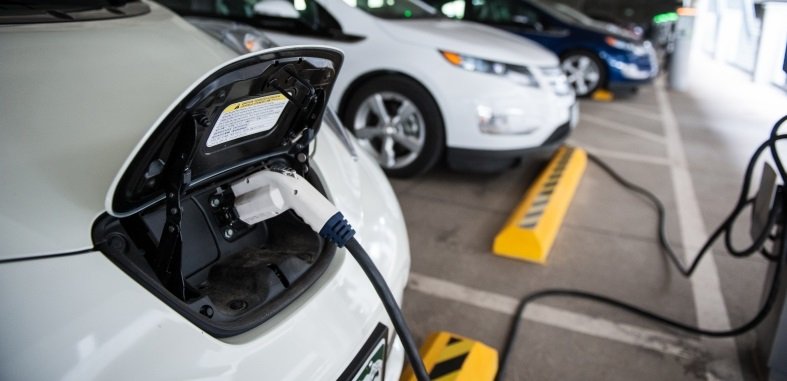
A charging system for electric cars is a great way of reducing your carbon footprint and protecting the environment. It can also improve the overall comfort of your daily driving routine. However, before you decide to install one of these gadgets, you should know a little about the product itself.
You can start by exploring the different options. Many states offer tax rebates or credits to homeowners who have charging stations installed. Businesses that install these stations may also be eligible for incentives. Some utilities offer programs that reward customers who switch to electric cars. Finally, solar systems can be equipped with a battery backup.
The location is an important part of any installation. If your neighbors prohibit outlets at the exterior of your home, it may be necessary to find another location to place the charging station. If your rental property has an outlet, it may be impossible to put one in the same spot. For example, if your house is located in a densely populated area, you may not have the option of installing a charging station in your garage.

There are many options when it comes to EV charging stations. Level one units are the simplest. They plug into any standard grounding wall socket and can charge your batteries very slowly. Many chargers can be used to charge vehicles up to 25 feet from the wall.
The level two charging station for EVs can generate about seven KW/hour. These are generally shoebox sized, and come with a cable that extends about 20 to 25 feet. A Level 2 charger can be installed indoors or outside. But the most expensive charging station may require an electrician, and you may have to get a local permit.
There are many options. You can install either a untethered or tethered unit, depending on what you need. Tethered units are a lot easier to install, but the cables are not as easy to replace. Untethered devices are lighter and more portable. They can also be connected to a public charger point.
While an electric car charging installation may seem daunting at first, it's actually a fairly simple process. The first thing you should do is identify the best charger for you. Consider the following: the exact location of the EV charging outlet, the distance between the charger and your car, as well as the length of each cord.

These chargers can be expensive, but you will get the best value for your money if you have a dedicated charging station. These stations will be customized to meet your requirements and usually cost around $600. You can also buy a pre-existing, tethered unit or the home version. An EV charger can increase the battery's lifespan and may allow you to drive longer without refuelling.
FAQ
How can I fix my automobile as a hobby.
Take up a hobby in car repair if you have an interest. It is possible to learn about cars, repair them, purchase parts, or simply enjoy them. This would be a wonderful hobby if you're looking to find something completely different.
It's not an easy task to make this a full-time job. This requires dedication and hard work. It requires a lot investment.
If you don't have any good reasons to be involved in cars, it may be better to just let it go.
What do I need to know about car mechanics?
To work as an auto technician, you don’t need to know much about cars. It's enough to know how to fix things. Most people start by fixing things like changing tires or fitting brake pads.
You'll need the ability to read and understand diagrams and to follow simple rules of good practise. You will also need to understand how parts should be replaced or repaired.
It's important to remember that you shouldn't attempt to repair vehicles without having received proper training and guidance. This is especially important if you work with expensive parts such as transmissions or engines.
Although you won't have to know much about automobiles, you must be familiar with the basics of mechanical engineering as well as physics. This involves understanding how engines work and how brakes work.
It is also important to remember that you will need to be able to handle many situations. One example is when you could be working on a vehicle involved in a serious crash. You will also need to be able to deal with accidents and breakdowns.
Finally, you need to be willing and able to quickly learn new skills. As well as being able to diagnose problems, you'll need to be able to perform simple maintenance tasks such as tightening nuts and bolts.
Is a career in automotive mechanic promising?
The automotive industry is full of exciting opportunities for those who are dedicated to excellence. It is important to work hard and learn as much from others as you can in order to succeed in this industry.
Because you will be spending most of your time communicating with customers and employees, you will need excellent communication skills. You should also be willing to travel and work long hours, making commuting difficult.
If you are interested in a career working in automotive, then consider attending classes at community colleges. Many schools offer programs designed specifically for students interested auto repair, sales, and customer services.
Mechanical engineering is a good choice if you are interested in pursuing a degree. You can get your bachelor's degree in as little as four years.
Many employers will also hire graduates straight from school. It's a smart idea to begin looking for work while you have the opportunity to study part-time.
After you've finished your education, it's likely that you'll need to go through some training before you can be hired as an auto technician.
This means you'll need pass exams like the Automotive Services Excellence (ASE), certification exam. This test covers topics such engine maintenance as brakes, steering, suspension, etc.
Once you have passed the ASE Test, you are eligible to apply for a National Institute for Automotive Service Excellence License.
A license permits you to repair private vehicles. You will be compensated based on how many services you performed.
Not all states require licensing. If you intend to work in another state, however, you will need a license.
Some states will not issue licenses until an individual has completed certain training. If this is you, you may need another option.
How can I prepare for a apprenticeship as a mechanic?
Understanding what you're getting into is crucial. You need to understand the mechanics of cars and how they work. This will help you to plan your first day in the garage.
You should also know how to fix common problems such as tires or broken lights.
This article will show you how to diagnose and fix issues.
You'll also need to know how different parts fit together to put them back together again.
Finally, you should be able use tools safely.
These things will enable you to be a competent mechanic.
What is the length of an apprenticeship as an automotive mechanic?
An automotive mechanic apprenticeship takes around three years to complete. This includes two years at school and two years working as an apprentice. The first year of training is spent in the trade. This includes theory and practical skills as well as safety procedures. This year, you will also learn how to safely and efficiently use tools. After completing the first year, you'll then spend another year on-the-job training where you'll gain experience in different areas of the trade. You'll have the opportunity to attend formal courses during these periods too.
The final year of the program is spent gaining qualifications and becoming certified in the field. These include NVQs or National Vocational Qualifications. These are earned after passing exams that cover specific topics in the industry. There are also HNCs (Higher National Certificates), which cover general subjects like management, business administration, customer service, and more. For those interested in pursuing certain trades, City & Guilds certificates are available.
Statistics
- There were 749,900 jobs available for automotive service technicians and mechanics in 2016, which is expected to grow by six percent through 2026. (jobhero.com)
- According to the BLS, the median annual salary for automotive service technicians and mechanics in the United States was $44,050 in May 2020. (uti.edu)
- The U.S. Bureau of Labor Statistics (BLS) reports that the job outlook for automotive service technicians and mechanics is expected to decline by 4% from 2019 to 2029. (indeed.com)
External Links
How To
How to protect yourself against auto mechanic frauds
Consumers are often victims of auto mechanic scamming. Consumers spend an average of $1,500 annually on repairs to their cars. This means that many people are willing to profit from this situation. However, if you know what to look for, you can avoid becoming a victim. These tips will help you identify scammers before they steal your money.
-
Never pay upfront. You should never pay upfront if someone asks. Always ask for payment once work has been completed. If you're unsure whether something is legitimate, call the Better Business Bureau (BBB) at 1-888-322-8138. They can give you advice about how to proceed.
-
Ask for referrals. The best way to ensure that you're dealing with a reputable service provider is to contact previous customers. Check online reviews. You should ensure that the business you do business with has a good reputation.
-
Do background checks. It is a good idea to do background checks before hiring. Check the BBB website to find out if there have been any complaints. Also, ensure that the vehicle's license number belongs to the person who owns the business.
-
Don't be afraid to walk away. Even if a business appears legitimate, scammers will try to get you to pay too much. If you feel you have been taken advantage of, don't hesitate and leave. There are many businesses out there that can help you.
-
Avoid "free" services. Numerous companies offer free estimates and inspections. These companies will often charge you exorbitant fees later. Always ask about additional charges before agreeing to anything.
-
Avoid being pressured. If a company offers a great deal, they may think they have the right to charge you less. If you find yourself in a situation where you are being pressured to buy something, it's likely a scam.
-
You should look for high-quality products. You want to make sure that the repair shop uses high-quality parts. If you need to replace brake pads, you don't want to go to a shop that uses cheap pads. Instead, you should go to a shop that specializes in brakes.
-
Get multiple quotes. It is important that you compare prices between shops. Comparing prices between shops will give you a better chance to find a fair price.
-
Keep records. Keep track of everything related to your repair. This includes all receipts, invoices, or warranties. Also, keep track of any telephone numbers and addresses you receive.
-
Stay informed